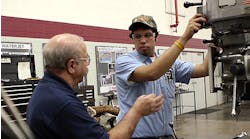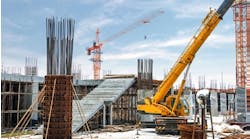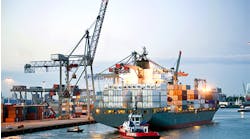It used to be customary to draft a column that set up the reader for a methodical tour through the following pages as well as the month ahead. I admired that technique, and tried my hand at it for some time. The trick was to find a common thread of insight through the articles and subjects in the issue in hand, and string that together with some general thoughts about recent developments or anticipated events. I still reach for that collective understanding from time to time, but B2B publishing (that’s what we call what we do … it’s business-to-business, for those who care) has changed so completely that it no longer makes much sense to assume we can hold the readers’ attention for an hour at a time, to say nothing of the whole month.
This is a discussion about time, and timing. We cannot know with precision when we’ll have a chance to reach the audience we aim for, so we work to be available to them always. Mostly, that’s done online, where you can find and read just about everything we have done, for July, January, last July, everything. We aim to please readers of these pages too, of course, but we’re working on plans and different planes all at the same time – and all of them are available to you.
But, being something of a recusant, I still want to see some continuity in the work we do. So, it struck me as I was touring the new foundry that Watts Water Technologies opened late last month in Franklin, NH, that we (or at least I) had reached a point of equilibrium in the endless discussions about the global economy and the role of government in industry, and the condition of U.S. manufacturing as a third-rail issue running along the first two.
I’ll write more specifically about Watts’ remarkable accomplishment in an upcoming issue, but I cannot set the point aside without congratulating all involved there. They built an entirely new plant without disrupting their current operation, and brought it online without stinting on their 100%-product inspection standard, all in a span of about 24 months, from concept to ribbon cutting.
They did this, I should point out, to ensure their products match the emergent federal standard that all castings used to handle or process water must be entirely lead-free. Personally, I see this as a mendacious regulatory overreach, but to their credit Watts did not waste time complaining or spare expense responding. They recognized their responsibilities to customers and employees, and to Franklin, NH, meant that waiting for the regulation to be waived or delayed would be a missed opportunity. So, with a list of determined equipment suppliers they got it done. The setting of their start-up on a beautiful summer day in a Colonial-era town induced an all-American air that was right in time for a July issue – and suggested a new tone might be prevailing among U.S. metalcasters: not doubtful or self-pitying, reserved, but resilient, and ready to grow.
Watts is far from the only new foundry in the U.S. In the automotive sector particularly there is a long list of projects installing new capacity to address new and changing demand. This is frequently attributed to the “reshoring” phenomenon — about which we’re presenting a thorough study in these pages.
I wrote a column about reshoring four months ago (less timely, it turns out) and my evaluation remains the same: it is nothing less than a shift in the balance of the global market, but it would be a grave mistake to see it as an end-state. There will be another shift, and very likely several more shifts.
That point sheds light on another entry in this month’s issue: the fifth and final installment of Mike Swartzlander’s series on Metalcasting Growth Strategies. (If you missed the earlier presentations, read them together online.) His continuing point is that metalcasters have to stay alert and engaged to the markets in which they operate. The world is not static, and metalcasters have to be informed as well as responsive, if they are to grow.
In an earlier age I might have promoted this as a “summer reading” issue, an old convention of magazines to lighten their work by running long articles. Take it that way if you wish, but the past is no place to rest. Sometimes, things come together just right, but whatever we learn we have to take it as an opportunity, and be ready to apply it.








